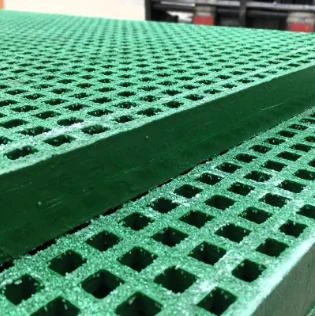loading...
- No. 9, Xingyuan South Street, Dongwaihuan Road, Zaoqiang County, Hengshui, Hebei, China
- admin@zjcomposites.com
- +86 15097380338
- Welcome to visit our website!
frp pressure tank
The Role of FRP Pressure Tanks in Modern Applications
In recent years, reinforced fiber polymer (FRP) materials have gained immense popularity in various industries due to their unique properties, which include high strength-to-weight ratio, corrosion resistance, and flexibility. One of the most notable applications of FRP is in the manufacturing of pressure tanks. These tanks play a crucial role in numerous sectors, from water treatment and storage to chemical processing and oil production. This article delves into the significance, advantages, and considerations associated with FRP pressure tanks.
Understanding FRP Pressure Tanks
FRP pressure tanks are composite containers designed to hold gases or liquids under pressure. They are made by embedding fibers such as glass or carbon in a resin matrix, which is then cured to create a strong, lightweight material. These tanks are particularly useful for applications where traditional materials like steel or aluminum may become unwieldy or susceptible to corrosion.
Advantages of FRP Pressure Tanks
1. Corrosion Resistance One of the standout advantages of FRP tanks is their resistance to corrosive environments. Unlike steel tanks, which can rust or corrode over time when exposed to chemicals or moisture, FRP tanks do not suffer from these issues. This property makes them ideal for storing aggressive chemicals, wastewater, and other corrosive materials without compromising structural integrity.
2. Lightweight FRP pressure tanks are significantly lighter than their metal counterparts. This reduced weight not only facilitates easier installation and transportation but also lowers the structural load on supporting buildings and frameworks. In scenarios where mobility is essential, such as on construction sites or in temporary facilities, the lightweight nature of FRP tanks is highly advantageous.
3. Customizability FRP technology allows for extensive customization in terms of shape, size, and color. This flexibility enables engineers and designers to create tanks that perfectly fit the specific requirements of the application. Whether for residential water storage, industrial chemical processing, or agricultural use, FRP tanks can be tailored to meet distinct needs.
frp pressure tank

4. Thermal Insulation FRP tanks provide excellent thermal insulation, which is vital in applications where temperature control is necessary, such as in the storage of specific chemicals or temperature-sensitive materials. The insulating properties help maintain the internal temperature, enhancing overall safety and efficiency.
Applications of FRP Pressure Tanks
FRP pressure tanks find applications across numerous sectors. In water treatment facilities, they are utilized for storing and transporting potable water. The food and beverage industry employs FRP tanks for brewing, fermentation, and juice processing, where hygiene and material integrity are paramount. Additionally, in oil and gas production, FRP tanks are used for storing various liquids and gases due to their resilience against extreme conditions.
Considerations and Limitations
While FRP pressure tanks offer many benefits, there are several factors to consider when selecting this material over traditional options. First, the initial cost of FRP tanks can be higher than that of metal tanks, which may be a barrier for some projects. Additionally, while FRP has excellent corrosion resistance, it is essential to ensure that the selected resin and fiber types are compatible with the stored material to avoid unforeseen issues.
Installation practices also play a crucial role in the performance of FRP tanks. Proper handling, support, and installation techniques are necessary to maintain the longevity and integrity of the tanks. Regular inspections and maintenance are equally important to ensure their continued effectiveness.
Conclusion
In summary, FRP pressure tanks represent a significant advancement in the field of storage solutions. Their remarkable properties—such as corrosion resistance, lightweight design, and customizability—enable them to thrive in diverse applications. As industries continue to evolve and adapt to more efficient technologies, FRP tanks will undoubtedly play an increasingly vital role in shaping the future of storage and transport, ensuring safety and efficiency in operations while addressing the challenges posed by traditional materials.
-
GRP Structures: The Future of Lightweight, High-Performance EngineeringNewsJun.20,2025
-
FRP Water Tank: High-Performance Storage for Corrosive and Clean Water SystemsNewsJun.20,2025
-
FRP Square Tube: The New Industry Standard for Chemical and Structural ApplicationsNewsJun.20,2025
-
FRP Pultruded Profiles: The Ultimate Choice for Lightweight Structural StrengthNewsJun.20,2025
-
FRP Handrails: The Safer, Smarter, and Stronger Choice for Modern InfrastructureNewsJun.20,2025
-
FRP Grating: The Smart Solution for Durable, Lightweight Industrial FlooringNewsJun.20,2025
-
Why Choose a Galvanized Water Tank for Your Storage NeedsNewsMay.21,2025
